Anyone with an interest in history will know that the heirs of Volga Bulgaria live in what is today the Republic of Tatarstan, part of the Russian Federation. The Tatars are known to be hard working and meticulous in what they do, so the quality of life is higher in their capital – Kazan – compared to the other Russian republics. People in Tatartan have kept their Bulgarian traditions alive and every year celebrate a feast called Sabantuy, marked everywhere in the world where there are communities of Volga Bulgarians.
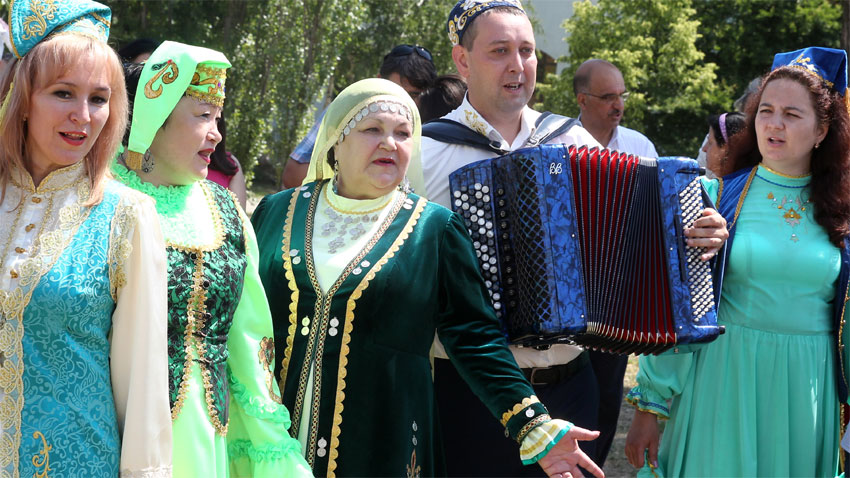
The festival goes back 1,000 years and has barely changed over time. It is also known as “plough feast” and is marked on the first Sunday of June, once sowing season is over. The Sabantuy tradition includes singing songs, cooking delicious food and sporting events for a good harvest.
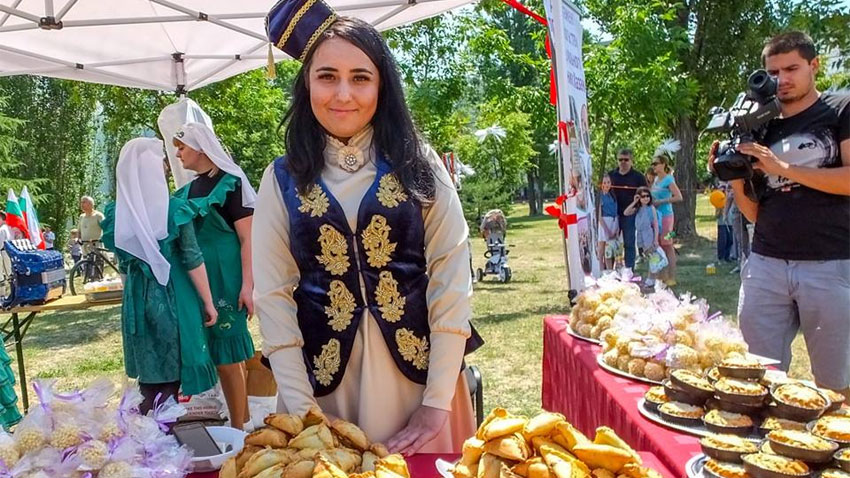
The Sabantuy tradition was brought to Sofia by the association of Volga Bulgarians and their guests from Kazan who come to visit with their countrymen in Bulgaria every year.
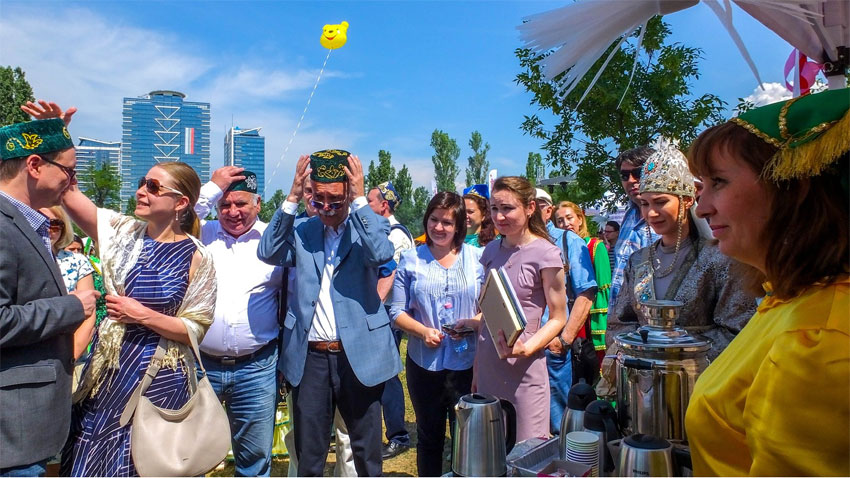
This year’s participants included representatives of the Historical Park near Varna, a theme park of the living history, the art of war and the way of life of our ancestors. A true-to-life Proto-Bulgarian Early Medieval nomadic homestead was arranged in one of Sofia’s parks especially for the festival which took place last Sunday. It was in early medieval times that the yurt took root, and it has barely changed to this day.
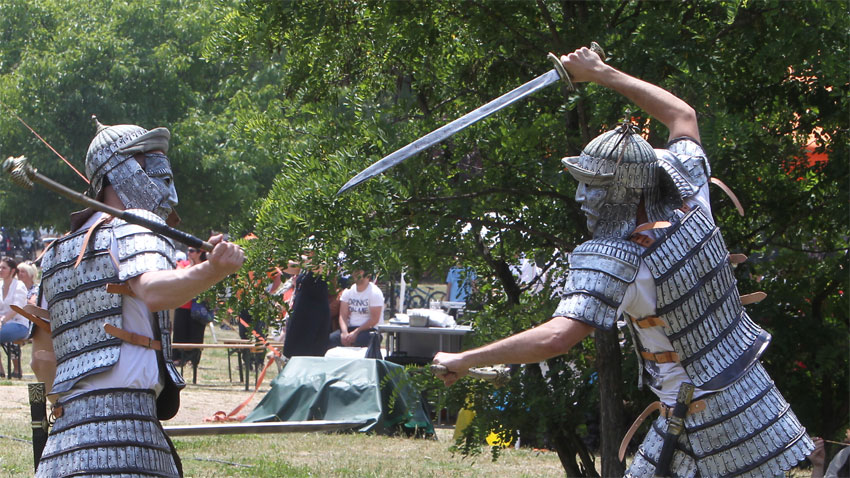
“Otherwise our yurt can be seen in Neophit Rilski village in the vicinity of the Neolithic settlement there,” saysMilen Petrov from the Historical Park. “Our group consists of 10 people in an association called Velichie (Glory). For the re-enactments we gather information from reliable sources like archaeological finds, source data about Proto-Bulgarians – of Byzantine, Armenian, Syrian origin, as well as pictures that have come down to us in chronicles, miniatures, frescoes. After careful analysis we select and re-enact what our guests want to see – usually horse races, wrestling bouts and hunting techniques. As in that period Bulgarians were mostly stockbreeders, in Sofia we opted to present their nomadic home, built of wool, animal skins and wood. The nomadic home is portable, collapsible and can be used by soldiers on the march and by stockbreeders as they moved around following their herds. It was also used during the great migrations of the people which usually took place after natural calamities or invasions. That is the reason why the nomadic home is such an important element of the life of our predecessors. The yurt has been part of the lives of the peoples of the East since ancient times. Its construction has differed in different periods, but it invariably is made of wood and covered with birch bark, deer hide, wool, rugs made of animal fur.”
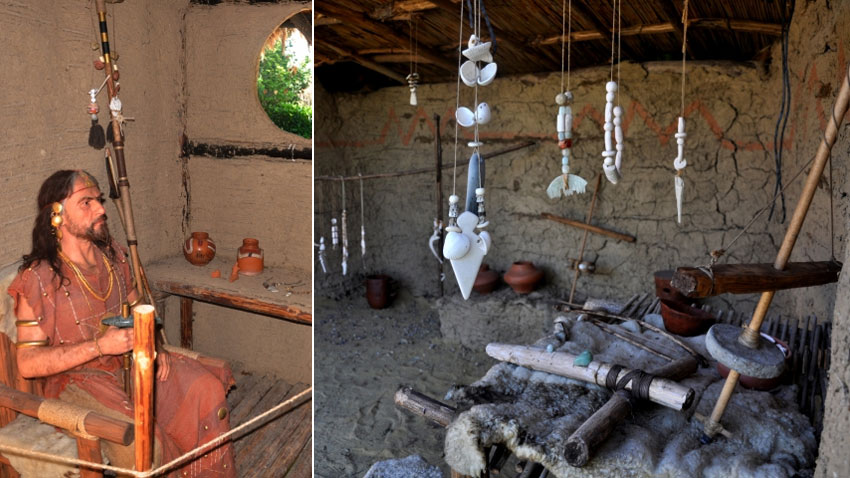
The Historical Park will be ready in the spring of 2019. According to plan it will be a place where one can trace our prehistory – from the Neolith down to the Middle Ages. It will bring together exhibits illustrating the way Proto-Bulgarians and Slavs lived, there will be a handicrafts street and an equestrian centre. The idea of the park is to acquaint the public with different periods of history as a form of entertainment – at the archery grounds, for example.
Photos: private library, BTA and chernomore.bg
A little over 1,450 Leva is the sum needed per month by an individual living in a one-person household, and a total of 2,616 Leva for the monthly upkeep of a three-member household - as is the most widespread model in Bulgaria at the moment (two..
The traditional "Easter Workshop" will be held from April 23 to 26 in the Ethnographic Exposition of the Regional History Museum - Pazardzhik. Specialists from the ethnographic department of the museum will demonstrate traditional techniques and..
In response to a listener's question, in a series of publications Radio Bulgaria presents to its multilingual audience the types of documents giving the right to reside and work in Bulgaria to foreign citizens of third countries . In the..
In response to a listener's question, in a series of publications Radio Bulgaria presents to its multilingual audience the types of documents giving the..
A little over 1,450 Leva is the sum needed per month by an individual living in a one-person household, and a total of 2,616 Leva for the monthly..
The traditional "Easter Workshop" will be held from April 23 to 26 in the Ethnographic Exposition of the Regional History Museum - Pazardzhik...

+359 2 9336 661
